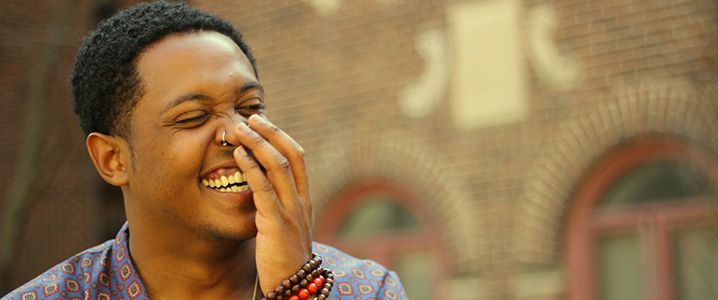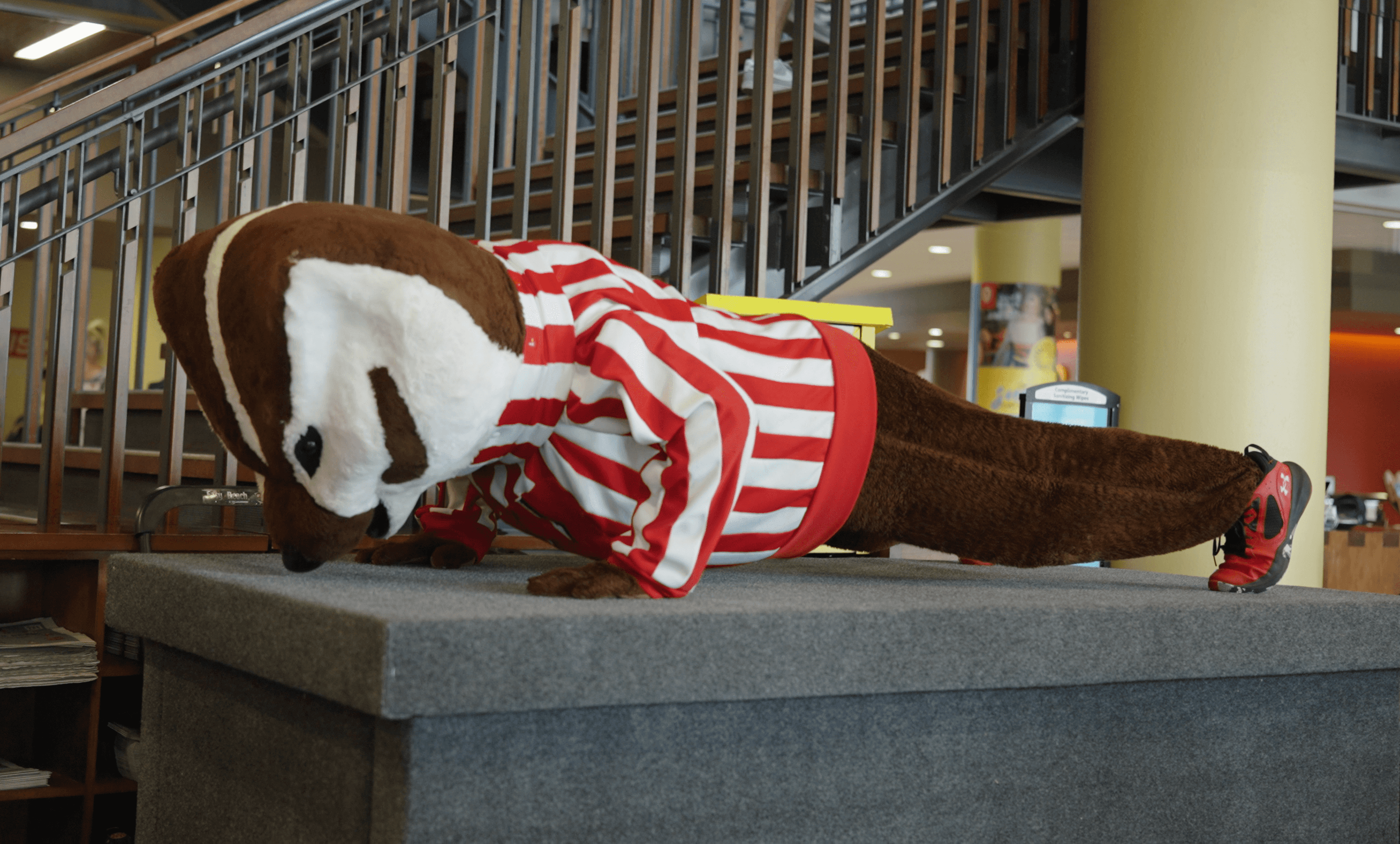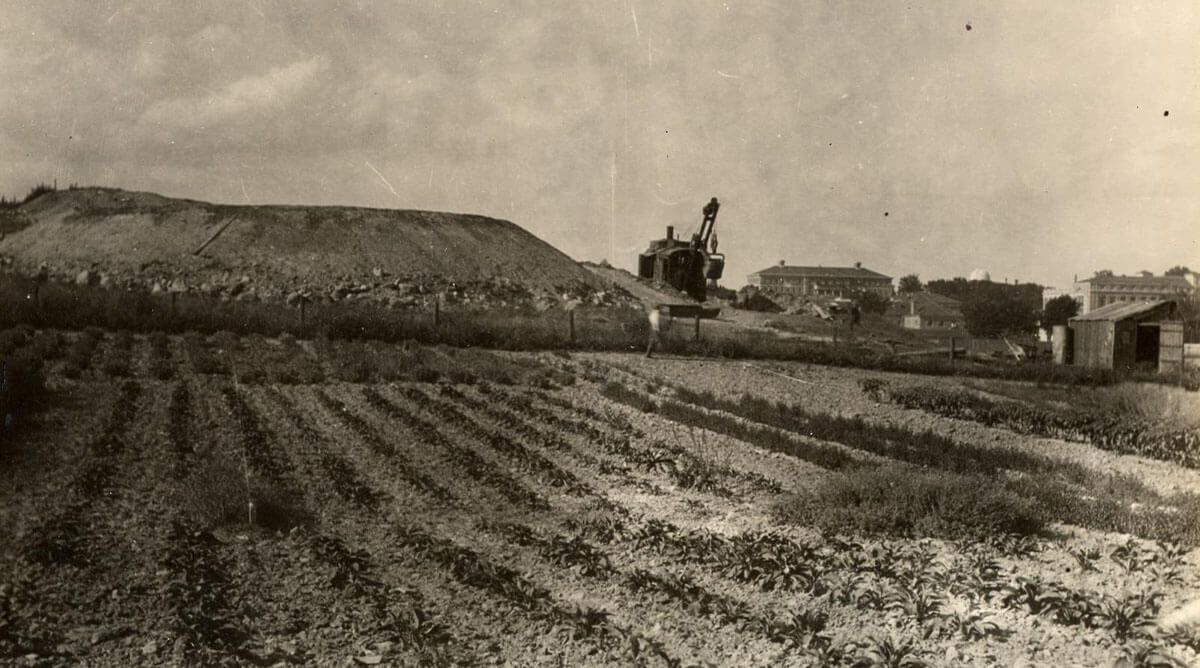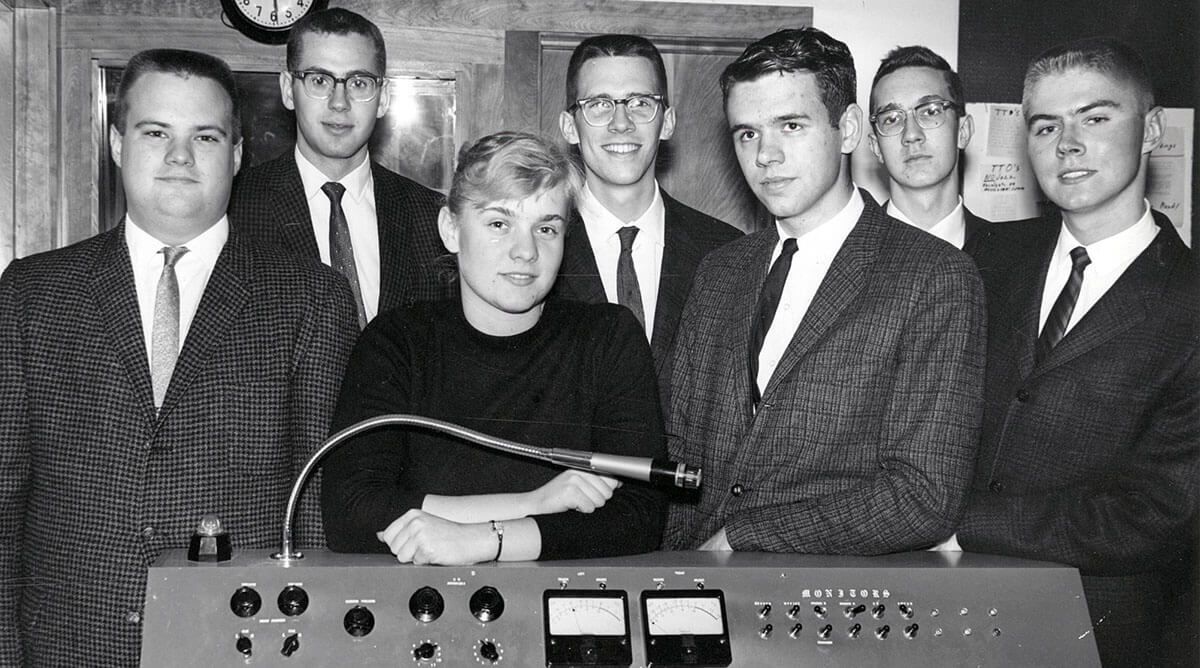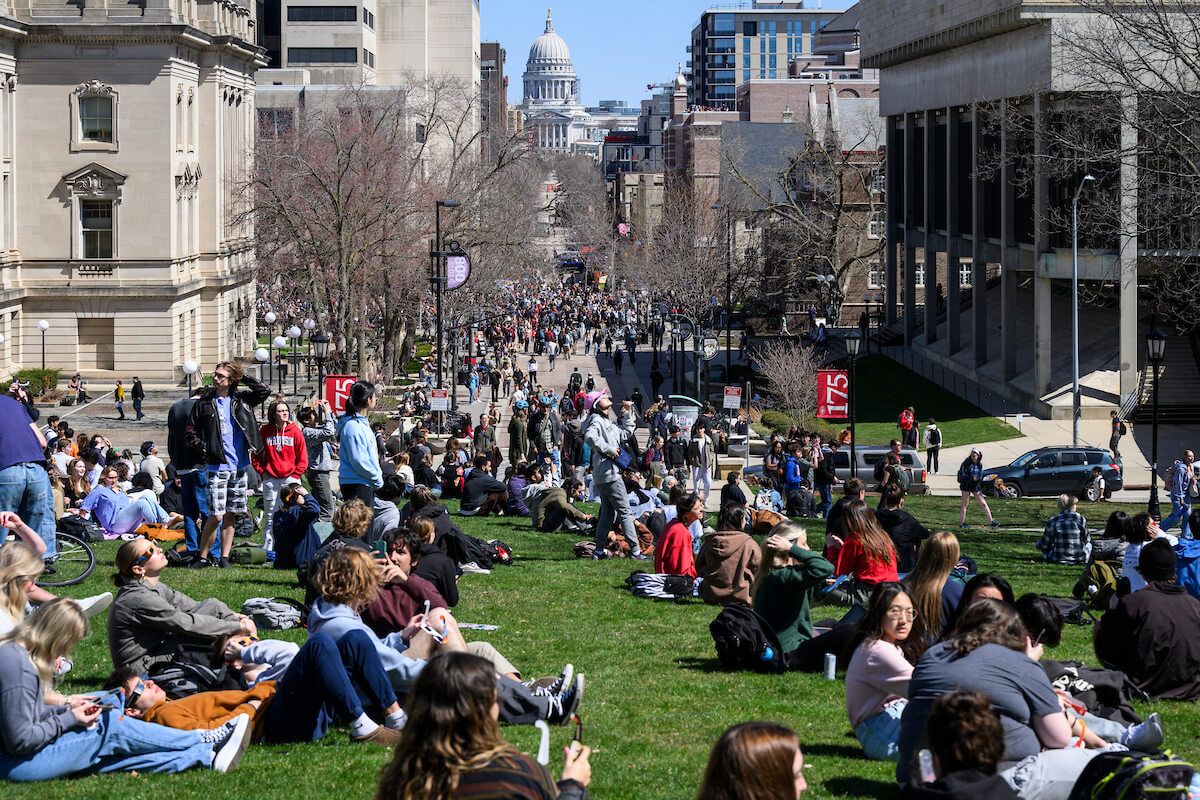Danez Smith ’12 is as open in conversation as they are on paper.
And they have a lot to say.
Smith is many things: First Wave alum, award-winning poet, National Book Award finalist, African American, HIV positive, and genderqueer. Smith embraces their multifaceted identity, selecting words — down to the pronoun they use — that state something powerful. Smith, who prefers to be addressed with the pronoun they, says it wasn’t until attending UW-Madison that they found language reflecting how they felt.
“[In college,] I got to interact with a lot of trans folks and a lot of gender-nonconforming folks and genderqueer and gender-fluid folks, and I think through my beautiful friendships and interactions, I started to find language that described how I felt inside a little more,” Smith says.
In addition to the Madison communities with which they were involved, Smith recounts other transformative experiences at the UW. They were a part of the inaugural cohort of First Wave, the nation’s first university program centered on urban arts, spoken word, and hip-hop culture. Smith wrote a one-person play during their junior year, leading to the idea that they could do “this artist thing” for the rest of their life.
Although Smith had positive experiences at the UW, they are also candid about challenges they faced. From Saint Paul, Minnesota, Smith found that Madison was not the place they had expected. The campus and surrounding city, Smith says, have a “sort of liberal dream” that is not always true for people of color.
“The city of Madison didn’t reflect myself back to me in a way that looked beautiful,” Smith says. “I didn’t see myself in the culture; I didn’t see myself in the art; I didn’t see myself in the people in power; I didn’t see myself in the classrooms — literally.”
Smith was sometimes the only student of color in a 100-person lecture hall and saw racist acts in the residence halls and in the streets. However, professors and communities within the university and the city made staying in school both possible and necessary.
“It was a hard place. I’m very grateful for a lot that I learned at UW–Madison, and I also think it owes a lot to its students of color,” they say.
Smith’s debut poetry collection, [insert] boy, earned the Kate Tufts Discovery Award and the Lambda Literary Award. Their latest, Don’t Call Us Dead, was a 2017 National Book Award finalist that addresses topics others tend to shy away from, including race, gender, love, and an HIV-positive diagnosis.
“I think I made a lot of my career off of being very bluntly honest,” Smith says. “It felt like by keeping [my HIV-positive diagnosis] a secret, I was giving it power. And by not writing about it, by not talking about it, by not being open about the process — just about my life with it — then I felt like shame, and I don’t like shame.”
Smith also worked briefly for Saint Paul public schools after graduating and hopes to become a professor who helps young artists to find their voice, just as Smith found their own. But Smith’s voice — both open and powerful — reaches far beyond the classroom, using language that seeks to free people more than it weighs them down.
“I’m interested in art that allows the people who take it in to feel more possible, or to feel seen in some sort of way, or to feel a little bit more alive,” Smith says. “Some art … is interested to define a human as a much more limited thing. I’m interested in art that frees, that elaborates on freedom, that opens doors instead of closes them.”
